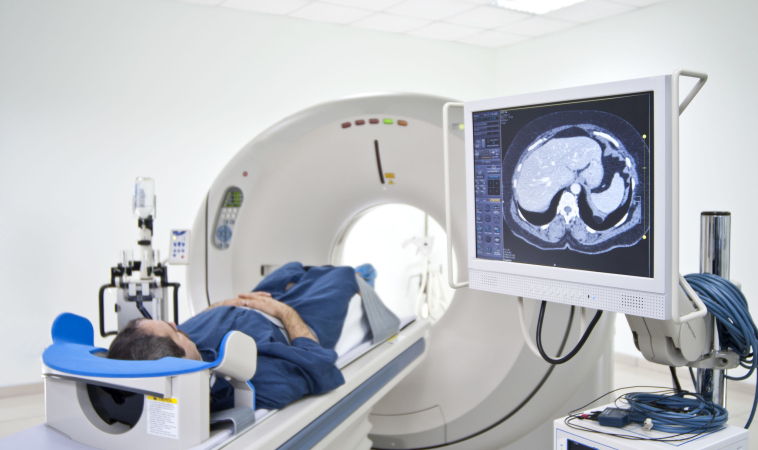A recent study presented at the American Heart Association Scientific Session conference supports coronary calcium levels as a better signifier of blocked arteries and heart attack risk than traditional risk indicators currently in use.1
Risks factors are valuable but do not reveal whether or not disease is present
“With coronary calcium, we’re looking at a marker indicating the actual presence of anatomic disease — we’re not just looking at probabilities of disease based on a patient’s standard risk factors,” said Jeffrey L. Anderson, MD, a cardiologist and cardiovascular researcher at the Intermountain Medical Center Heart Institute in Salt Lake City. “The risk factors are worth knowing, but they don’t tell whether or not you actually have the disease.”
Relevance of these risk factors in individual cases have long been questioned by holistic doctors
Traditional risk factors that have long been used to determine cardiovascular risk include age, gender, weight (BMI), blood pressure and cholesterol levels. The relevance of these risk factors in individual cases have long been questioned by holistic doctors, and other diagnostic tests, like coronary calcium have been advocated to determine the actual disease process. This has especially been the case when looking at cholesterol, the production of which has a wide genetic variance. And the role of cholesterol in disease process is often questioned by natural health practitioners. Tests such as coronary calcium score have been championed as a more useful predictor of coronary disease than simply total cholesterol.
Study is vital because two-thirds of Americans with cardiovascular disease are considered low-risk by standard risk factors
This study is important because two-thirds of Americans with cardiovascular disease actually are considered low-risk by these standard risk factors anyway, suggesting that screening tools currently being used are suboptimal.
Study examined over 1,000 symptomatic individuals presenting to the healthcare system without known coronary artery disease
The study looked at over 1,000 symptomatic individuals presenting to the healthcare system without any known coronary artery disease. Each patient received a PET-stress test to measure coronary flow, and a comprehensive diagnostic evaluation. The PET/CT allowed for coronary calcium score to be measured. Three different atherosclerotic cardiovascular disease risk scores were calculated based on the intake data: standard Pooled Cohort Equation (based on traditional risk factors), the Multi-Ethnic Study of Atherosclerosis (MESA) Risk Score (which combines coronary calcium and traditional risk factors), and the Coronary Calcium Score alone.
Patients followed in effort to see who went on to revascularization, heart attack and/or died succeeding 2 years
Patients were followed to see who went on to revascularization (either bypass surgery or coronary stent), and who had a heart attack or died during the following two years.
Coronary calcium score predicted the presence of coronary artery disease better than standard risk factors
They found that risk equations that included coronary calcium score predicted the presence of coronary artery disease better than standard risk factors. Also, of the 29 patients that presented with no coronary calcium, none had any major heart problems during the tracking period.
“Calcium in the artery doesn’t tell you the extent of soft plaque, but it does mark that disease is present,” Dr. Anderson said. “These results tell us that coronary calcium adds importantly to probability estimates.”
Cost of this screening is relatively low – $100 or less
The cost of this screening is relatively low – $100 or less. Dr. Anderson advocates it and being considered in the future as part of routine medical care after age 50 for men and 55-60 for women.
“We accept that mammograms should be done for women and colonoscopies should be done for everybody at a certain age, and they’re much more expensive than a calcium scan,” he said.
 Razi Berry is the founder and publisher of the journal Naturopathic Doctor News & Review that has been in print since 2005 and the premier consumer-faced website of naturopathic medicine, NaturalPath. She is the host of The Natural Cancer Prevention Summit and The Heart Revolution-Heal, Empower and Follow Your Heart, and the popular 10 week Sugar Free Summer program. From a near death experience as a young girl that healed her failing heart, to later overcoming infertility and Chronic Fatigue Syndrome and Fibromyalgia through naturopathic medicine, Razi has lived the mind/body healing paradigm. Her projects uniquely capture the tradition and philosophy of naturopathy: The healing power of nature, the vital life force in every living thing and the undeniable role that science and mind/body medicine have in creating health and overcoming dis-ease. Follow Razi on Facebook at Razi Berry and join us at Love is Medicine to explore the convergence of love and health.
Razi Berry is the founder and publisher of the journal Naturopathic Doctor News & Review that has been in print since 2005 and the premier consumer-faced website of naturopathic medicine, NaturalPath. She is the host of The Natural Cancer Prevention Summit and The Heart Revolution-Heal, Empower and Follow Your Heart, and the popular 10 week Sugar Free Summer program. From a near death experience as a young girl that healed her failing heart, to later overcoming infertility and Chronic Fatigue Syndrome and Fibromyalgia through naturopathic medicine, Razi has lived the mind/body healing paradigm. Her projects uniquely capture the tradition and philosophy of naturopathy: The healing power of nature, the vital life force in every living thing and the undeniable role that science and mind/body medicine have in creating health and overcoming dis-ease. Follow Razi on Facebook at Razi Berry and join us at Love is Medicine to explore the convergence of love and health.

















